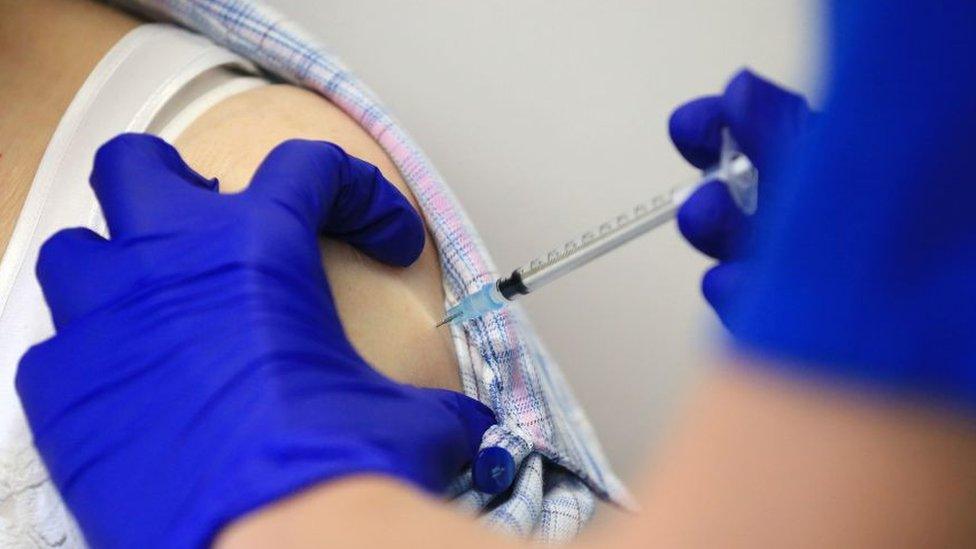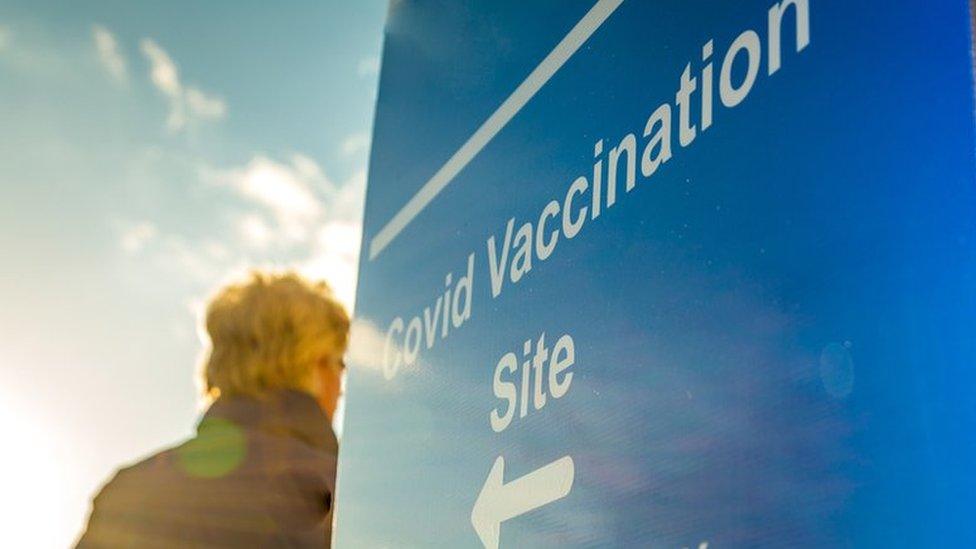Who can get a Covid booster this spring and what do private jabs cost?
- Published

The NHS spring booster campaign is offering Covid jab to groups of vulnerable patients across the UK.
Around 7.5 million people in England are eligible for a top-up vaccination.
Many pharmacies also sell the Covid jab privately.
Who can get an NHS Covid booster jab?
Eligible members of the public in England can have a spring booster between 1 April to 17 June.
Vaccinations are being offered to:
adults aged 75 years and over
residents in a care home for older adults
people aged between six months and 74 years who have a weakened immune system, external and are at a greater risk from severe illness
Those who turn 75 years old between 1 April and 17 June 2025 can also have the jab.
NHS England says it is contacting everyone who qualifies by text, email, app message or letter.
However, those who qualify do not have to wait for an invitation and can visit the NHS website, external, use the NHS app or call 119 to book an appointment.
In different parts of the UK, the groups who qualify for a spring booster are the same but the dates of the campaign are slightly different:
Scotland, external: 31 March until 30 June
Wales, external: 1 April until 30 June
Northern Ireland, external: 7 April until 30 June
Which Covid vaccines are used in the UK?
The NHS uses vaccines from two companies across the UK: Pfizer-BioNTech and Moderna.
People are advised to take whichever vaccine they are offered, as both provide protection against severe illness or death.
Data from the UK Health Security Agency - based on the 2024 spring vaccination programme - showed those who received a vaccine were more than 40% less likely to be admitted to hospital with Covid for up to two months after their jab, compared to those who did not receive one.

AstraZeneca pulled its Covid vaccine worldwide because of the surplus of updated vaccines from its competitors.
At the firm's request, in May 2024, the European Medicines Authority withdrew authorisation for the vaccine,, external which is no longer being manufactured or supplied.
Where can I buy a Covid vaccine and what does it cost?
A number of High Street chemists and private clinics sell and administer the Pfizer Covid vaccine directly to the public.
The cost per single dose varies but is typically between £75 and £99.
You need to be aged 12 or above, and must not have had a Covid vaccine in the previous three months. You also need to talk to a health professional to check that it is suitable.
A protein-based booster vaccine made by Novavax, which works differently to the Pfizer and Moderna jabs, is also available.
Moderna hopes to launch a combined flu and Covid vaccine later in 2025 or 2026, after the jab passed a vital part of final-stage scientific checks in June 2024.
Pfizer is also testing a similar two-in-one vaccine against flu and Covid.
How long after having Covid can I have a jab?
If you have Covid, or think you might, the NHS recommends delaying vaccination until you feel better., external
It also advises postponing if you have a high temperature or feel otherwise unwell with any illness.
However, there is no need to wait if you have recently recovered from Covid and feel well. The vaccines do not infect people with Covid, and cannot cause positive test results.
What are the side effects of the Covid vaccine?
For most people, side effects are mild., external The most common include a sore arm, headache, chills, fatigue and nausea.
They are part of the body's normal immune response to vaccination and tend to resolve themselves within a day or two.
Why it is normal for some people to experience short-term side effects from Covid-19 vaccines
Very rarely myocarditis - inflammation of the heart muscle - has been linked to the Moderna and Pfizer vaccines.
A very small number of people have experienced a severe allergic reaction, external after the Pfizer vaccine.
Patients with serious allergies should talk to their healthcare professional before being vaccinated.